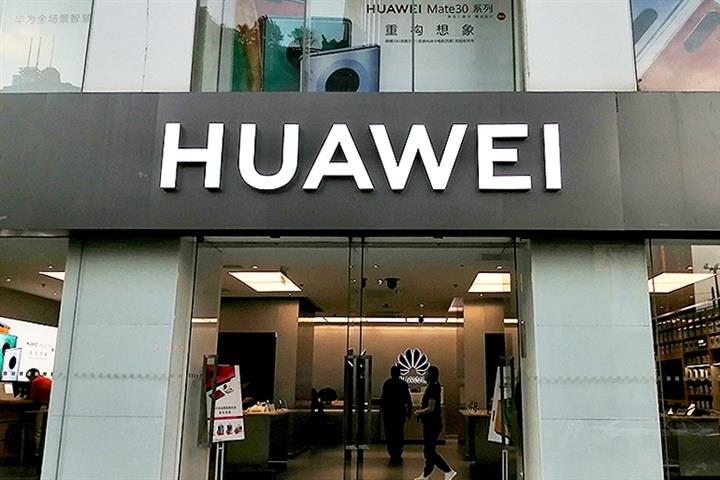 Huawei Ban Is Likely to Have Huge Knock-On Effect on Korea’s Chip Industry, Analysts Say
Huawei Ban Is Likely to Have Huge Knock-On Effect on Korea’s Chip Industry, Analysts Say(Yicai Global) Sept. 10 -- Korea’s semiconductor exports to Huawei Technologies are likely to be greatly affected by the sweeping US trade ban, due to come into force on Sept. 15, which prevents any chipmaker worldwide from supplying the Chinese telecoms giant with hardware that incorporates US technology.
Samsung Electronics and SK Hynix, the world’s number one and number two semiconductor makers, will have to stop supplying Huawei with core components, such as memory chips, that are made using US technologies from Sept. 15, business technology news site ZDNet reported yesterday.
Both companies had no comment to make when contacted by Yicai Global.
The ban is likely to have a huge knock-on effect on the Korean semi-conductor industry, analysts said. Huawei accounted for 6 percent of all electronic devices exported from Korea to China last year, amounting to KRW11.85 trillion (USD10 billion), most of which were semiconductors and display screens, according to Huawei.
A large proportion of Samsung Electronics and SK Hynix’s sales go to China, said Seon-Yeob Lee, an analyst at Shinhan Financial Group. The enforcement of the ban will not only affect their performance but will cause investors’ expectations to slump. This will start to be reflected in fourth-quarter earnings, he added.
Korea’s entire chip sector will face a crisis if these chip-making giants are unable to find a better customer than Huawei, said Chul-Joo Hwang, executive vice chairman of the Korea Semiconductor Industry Association. In Korea, small and medium-sized suppliers tend to follow the lead of larger corporations, he added.
Samsung Display and LG Display will also stop providing Shenzhen-based Huawei with display-related components, including display chips, Drive ICs, as well as displays that are not influenced by the restrictions, Yicai Global learned.
The impact on Korean tech firms and device manufacturers may be greater than during the global subprime mortgage crisis in 2008, if US-China trade frictions and protectionism continue, said Joon-Seok Shim, the chief representative of Korea International Trade Association's Shanghai branch.
Upstream and downstream supply chains will also be affected. Many of these firms are small and medium ones, which lack capital resources, affect their investment in research and development, Shim added.
An online briefing about the Huawei sanctions held by the Korean International Trade Association was attended by over 100 tech firms, when participation is usually a few dozen, indicating how unprepared Korea was for such US’ measures, Shim added.
The US’ latest policies, though, are unlikely to have too much impact on the construction of the country’s fifth-generation mobile networks, 70 percent of which is already completed, carrier LG Uplus told Yicai Global. Seoul-based LG Uplus is the biggest overseas user of Huawei's 5G network equipment, according to Korean data.
Editor: Kim Taylor